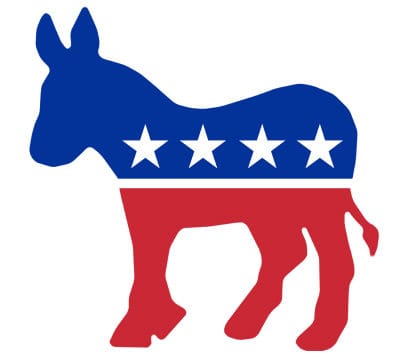California Democratic Party maneuvering to counter effects of top-two open primary


Following in the strategic steps of their Republican colleagues, and after long considering an alternative of their own, the California Democratic Party is looking into an endorsement system that would seek to offset the intended effects of the voter-approved top-two open primary initiative known as Proposition 14.
The Los Angeles Times reports that, under a recent committee proposal from California Democrats that allows small groups of party insiders to determine the candidates that get party endorsements, a caucus system would be set up in which local party activists would endorse both legislative and congressional candidates. Like their Republican counterparts did a short time ago, Democratic party leaders considered the decision at their annual party convention. Interestingly enough, the Times said that party leaders even debated whether those not willing to be labeled as Democrats should be allowed to receive the party's approval. The suggestion, however, wasn't very well-received by the party as a whole.
Back during the California Republican Party's convention almost two months ago, Democratic leaders seemed to be playing a wait-and-see approach, observing how their opposition on the right was going to deal with the new changes coming from the top-two open primary. California Republican Party leaders at that time considered a mail-out ballot primary campaign to weigh which candidates they should put forward for the later top-two open primary.
Whereas the Democratic plan would take decisions directly to local party leaders, the Republican plan considered taking their key decisions regarding candidates straight to voters registered with the Republican Party. Although both offer different approaches, their intent appears to be one and the same: skirting Proposition 14's intended effects.
As both parties' memberships decline, and as both continue to spar over California's ongoing budget crisis, it's ironic that both would disapprove of the new top-two open primary system. In a sense, it does seem to validate the criticism of some voters who believe that both major parties virtually indistinguishable in the public affairs arena. By fighting the new open primary system, the perception that both parties exist primarily to protect special interests becomes more deeply entrenched.
Proposition 14 is here to stay until further notice. The best approach that parties can take is to seek to work within these voter-approved changes. Embracing them doesn't necessarily have to mean watering down their core messages; rather, it entails each party doing a better job of showing why their respective solutions to the state's woes are the more rational and effective ones. If either major party is unable to accomplish such a task, then perhaps it's time for their respective leaders to perform some much-needed introspection.


